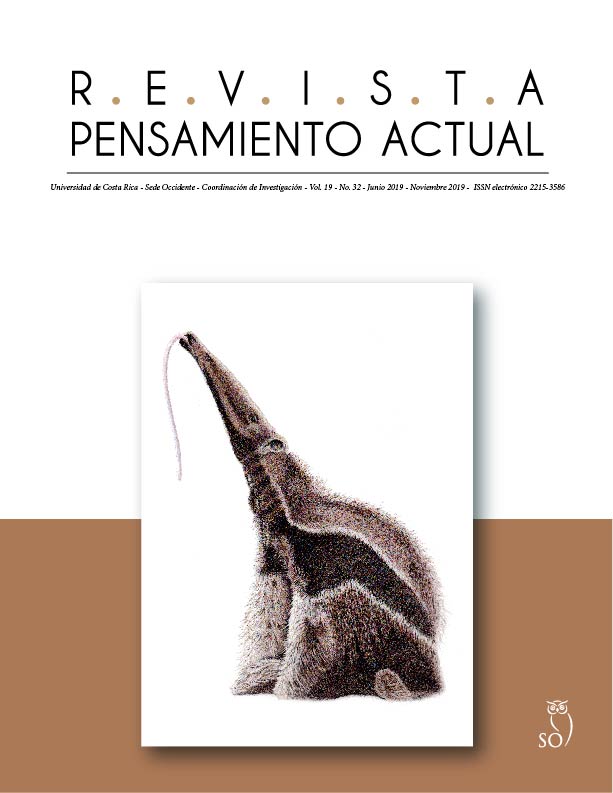Abstract
This article contains the results of an analysis based on experiences and educational strategies. The aim of this research is focused on the search for initiatives that involved Information and Communication Technologies (ICT) in the development of “computational thinking” in Iberoamerica. First, the definitions given by experts are reviewed, conceptualizing the term “computational thinking”. Then, they are contrasted to identify common and particular aspects in order to choose a concept as the basis for this research. Second, the competences related to computational thinking are examined, which are discussed in the analysis of the proposals. Subsequently, the experiences found, regarding the teaching of programming or related topics, are analyzed according to predefined parameters that allowed describing them uniformly.
The analysis showed that most of the experiences found took place in Argentina, Chile and Spain. It was also found that the area of application is institutional, both at university and secondary level, through educational proposals of outreach and articulation between the institutions. Also, it is known that the tools and materials used are mostly self-developed and the use of non-paid and free material is promoted. The approach of the experiences seeks to solve problems from diverse areas. This analysis revealed that most of the proposals manage to develop all the knowledge, skills and attitudes taken as a basis, including: problem solving, information abstraction, algorithm design, modularization, simulation, implementation, generalization and transfer, persistence and teamwork.
References
Barr, V., y Stephenson, C. (2011). Bringing Computational Thinking to K-12: What is Involved and What is the Role of the Computer Science Education Community ? ACM Inroads, 2(1), 48–54. Consultado: Abril 1 de 2016, desde: https:// csta.acm.org/Curriculum/sub/CurrFiles/ BarrStephensonInroadsArticle.pdf
Center for Computational Thinking Carnegie Mellon. (n.d.). Center for Computational Thinking, Carnegie Mellon. Consultado: Abril 1 de 2016, desde: http://www.cs.cmu.edu/~CompThink/
Compañ-Rosique, P., Satorre-Cuerda, R., Llorens-Largo, F., & Molina-Carmona, R. (2015). Enseñando a programar: un camino directo para desarrollar el pensamiento computacional. RED. Revista de Educación a Distancia, 46(11). Consultado: Abril 1 de 2016, desde: http://doi.org/10.6018/red/46/11
Denning, P. J. (2010). What is Computation? Ubiquity, (November), 1–11. Consultado: Abril 1 de 2016, desde: http://ubiquity.acm.org/article. cfm?id=1880067
Denning, P. J. (2009). Taslak The profession of IT Beyond computational thinking. Communications of the ACM, 52(6), 28. Consultado: Abril 1 de 2016, desde: http://sgd.cs.colorado.edu/wiki/ images/7/71/Denning.pdf
ISTE, y CSTA. (2011). Operational Definition of Computational Thinking. Report, 1030054. Consultado: Abril 1 de 2016, desde: https://csta. acm.org/Curriculum/sub/CompThinking.html
Kafai, Y., Resnick, M., Maloney, J., Monroy-Hernández, A., Rusk, N., Eastmond, E., Silverman, B. (2009). Scratch: Programming for All. Consultado: Abril 1 de 2016, desde: http://web.media.mit.edu/~mres/ papers/Scratch-CACM-final.pdf
Kemp, P. (2014). Computing in the national curriculum A guide for secondary teachers Computing in the. (Computing at School., Ed.). Consultado: Abril 19 de 2016, desde: http://www.computingatschool. org.uk/data/uploads/cas_secondary.pdf
Linn;, M. C., Aho;, A. V, Blake;, M. B., Constable;, R., Kafai;, Y. B., Kolodner;, J. L., Bradley, S. (2010). Report of a Workshop on The Scope and Nature of Computational Thinking. Thinking (Vol. 1). Consultado: Abril 1 de 2016, desde: http://doi. org/10.17226/12840
Lugo, M., & Kelly, V. (2010). Tecnología en educación ¿Políticas para la innovación ? Instituto Internacional de Planeamiento de La Educación IIPE-Unesco, 13. Consultado: Abril 1 de 2016, desde: www.ibertic.org/evaluacion/sites/.../13_ tecnologia_en_educacion_lugo_kelly.pdf
Moursund, D. (2007). Computational Thinking and Math Maturity : Improving Math Education in K-8 Schools (Second Edition), Computer Science Education, 1–108. Consultado: Abril 2 de 2016, desde: http://uoregon.edu/~moursund/Books/ ElMath/ElMath.html
National Research Council. (2011). Report of a Workshop of Pedagogical Aspects of Computational Thinking. Consultado: Abril 1 de 2016, desde: http://people.cs.vt.edu/~kafura/CS6604/Papers/ NRC-Pegagogy-CT.pdf
Panoff, R. (2014). Computational thinking for all: the power and the peril. Proceedings of the 45th ACM technical symposium on Computer science education. Consultado: Abril 20 de 2016, desde: http://dl.acm. org/citation.cfm?id=2554795&dl=ACM& coll=DL&CFID=773650268&CFTOKEN= 77132837
Sarmiento, M., Gorga, G., y Sanz, C. (2017). Análisis de experiencias y estrategias educativas con TIC para el desarrollo del pensamiento computacional en estudiantes de secundaria y primeros años de universidad en Iberoamérica (trabajo final). Universidad Nacional de La Plata, La Plata, Buenos Aires. Consultado: Febrero 14 de 2018, desde: http://sedici.unlp.edu.ar/handle/10915/60186
SITEAL. (2014). Informe de tendencias sociales y educativas en América Latina 2014. Siteal, 1–262. Consultado: Abril 20 de 2016, desde: http://www. siteal.iipe.unesco.org/sites/default/files/siteal_ informe_2014_politicas_tic.pdf
Wing, J. M. (2006). Computational Thinking. Communications of the Association for Computing Machinery (ACM), 49(3), 33–35. Consultado: Abril 1 de 2016, desde: https://www. cs.cmu.edu/~15110-s13/Wing06-ct.pdf
Wing, J. M. (2014). Computational thinking. Benefits society. Consultado: Abril 28 de 2016, desde: http://socialissues.cs.toronto.edu/2014/01/ computational-thinking/
Wing, J. M. (2012). Computational thinking. Communications of the ACM, 49(3), 33–35. Consultado: Abril 28 de 2016, desde: http:// research.microsoft.com/enus/um/redmond/ events/asiafacsum2012/day1/Jeannette_Wing.pdf
Wing, J. M. (2011). Computational Thinking: What and Why? Consultado: Abril 1 de 2016, desde: http:// www.cs.cmu.edu/~CompThink/resources/ TheLinkWing.pdf

